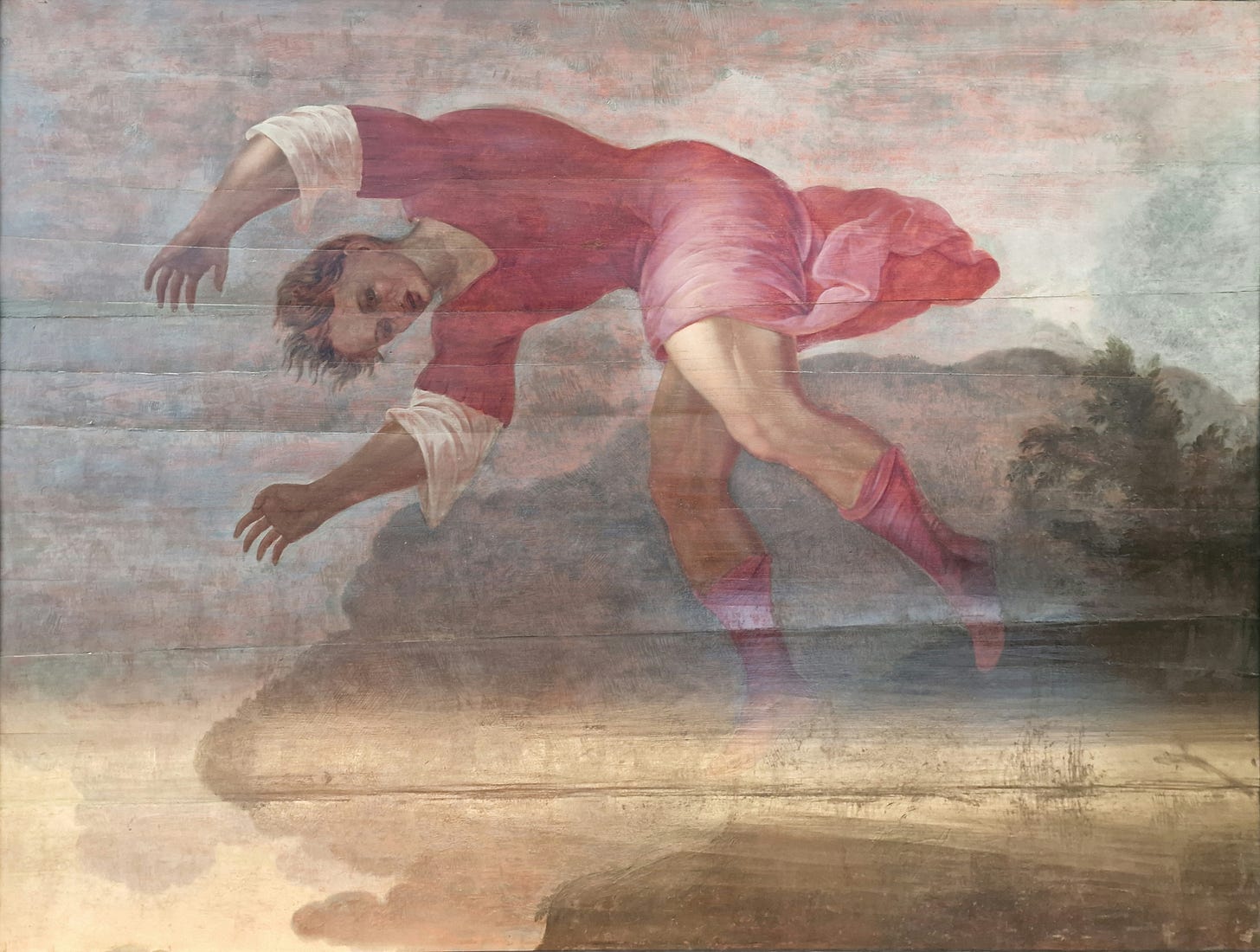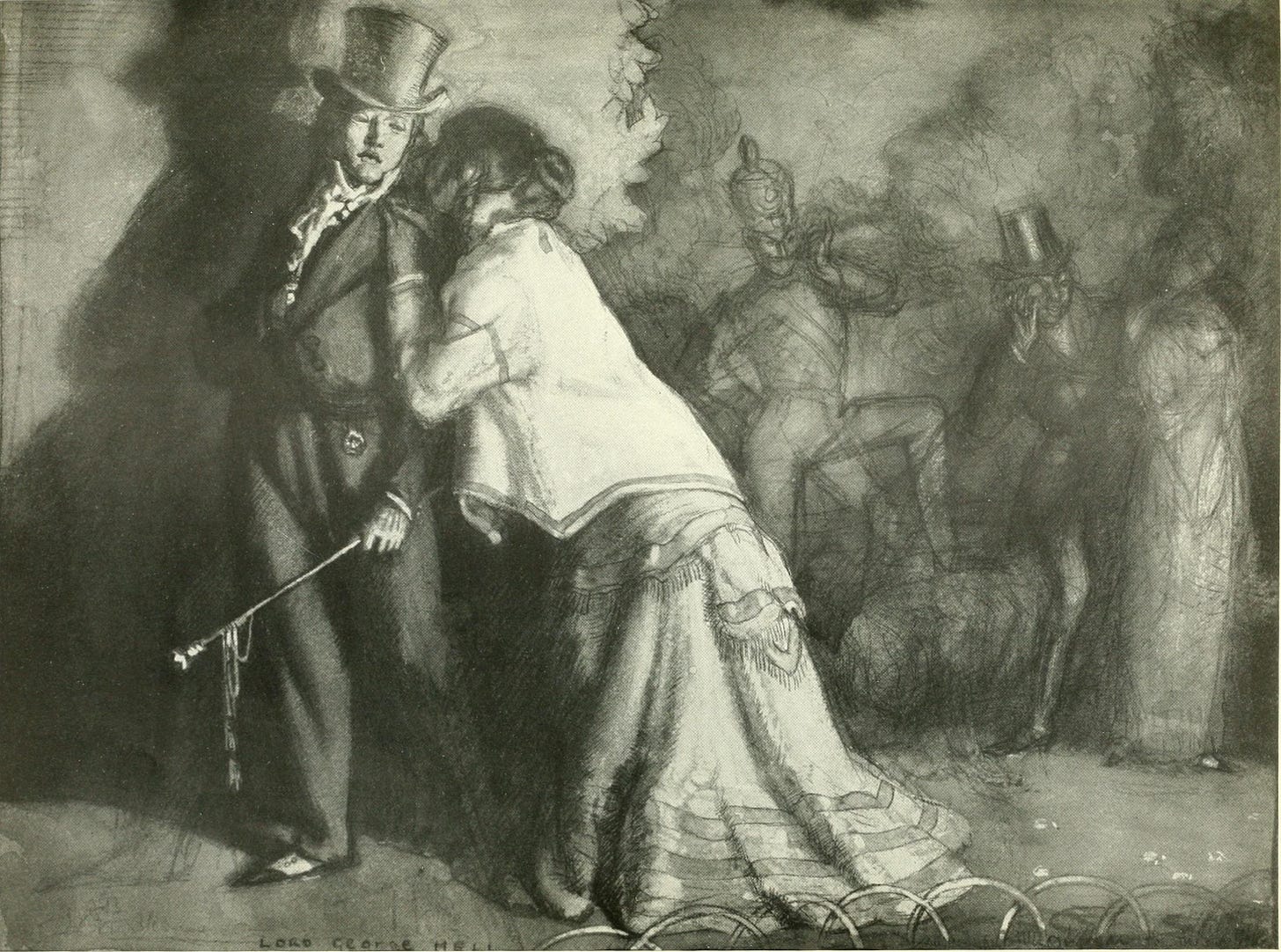Your Mask is Slipping
Why we demand dreams but punish pretension
I once lived in New Orleans, a city of contrasts: towering churches bordered by voodoo shops, fine dining amid swamps, and a resilient local community bombarded by tourism. My nostrils still remember the distinct abhorrence of party puddles on my morning commute. Last week was Ash Wednesday, and I can picture the Mardi Gras beads and masks that littered Bourbon Street.
You would never know the people cleaning restaurants and riding elevators to their law offices were the same ones running amok in the streets the night prior. But that was the beauty of Mardi Gras—everyone could enjoy the carnival behind a mask. People could mingle, despite their class or standing, and let loose without reservation.
But Mardi Gras isn’t the only time we wear masks. Any nation, company, movement, or person aspiring to be something they are not today can pretend. Whether donning the comedy or tragedy mask, pretending has a price.
Comedy of the Fish
"Poetry is the journal of the fish living on land, wanting to fly in the air." – Carl Sandburg
Anyone who has aspired to transcend their limitations is like this fish. And that fish is pretentious. The word carries a negative connotation in popular culture, but do we even know what it means? Beginning with its etymology: the Latin prae, meaning “before,” and tendere, meaning “stretch” or “extend,” combine to mean “extend before.” Dan Fox, a cultural critic and art writer, illustrates it clearly: “Think of [pretension] as holding something in front of you, like actors wearing masks in the ancient Greek theater.”1
Pretending is as old as human culture. In ancient theater, when actors donned masks to become characters and tell stories to the public, they perpetuated ideas that shaped culture and even became the cornerstones of nations. Rome was founded on the legend of Romulus and Remus, but whether these brothers existed did not matter because this story of Rome gave its people a sense of divine destiny. The pretension of living up to this myth manifested in one of the greatest civilizations the world has ever known. In the U.S., Manifest Destiny was an idea that America could expand through a radical sense of exceptionalism. No facts predicated this belief, and it came at a gruesome cost, but the pretension of early frontiersmen enabled a new nation.
As America became “civilized,” the Manifest Destiny myth transformed into the American Dream—a belief that anyone could invent themselves into whomever they imagined. In contrast to the socially stratified society of 19th-century Europe, this pretension was intoxicating. F. Scott Fitzgerald captured this desire in the character of Jay Gatsby, a man who transformed from a poor nobody in North Dakota into a man of wealth and esteem through his own means.2 The Great Gatsby was the fish who wished to fly.
Tragedy of the Crab
“A fisherman knows catching one crab is folly, for it will swim from the net and be free. But catching two crabs is wise; if one tries to swim free, the other will yank it back down.”
If our provincial friend starts dressing fancy or an analytical engineer attempts to paint, we label them pretentious. Founded on the belief that authenticity is an a priori good, we claim our actions “defend truth” and guide people back to their “real selves.” Beyond moral policing, we might believe we are altruistic protectors, preventing each other from donning artificial wings and flying too close to the sun. Even though we tell young people that it’s great to dream of flying, we don’t want a precocious kid to fall to an Icarus death.
Beyond moral or altruistic objections to pretension, the real reason we reject it is simpler: people fear what they don’t understand. When something masquerades as reality, it threatens their worldview, so they label it fraud.
Of course, some pretension is fraudulent. When Elizabeth Holmes pretended to be the next Steve Jobs and built Theranos on a lie, she didn’t stretch toward greatness—she faked it entirely, risking lives in the process. But fear of fraud shouldn’t become an excuse for gatekeeping ambition. Not everyone who aspires beyond their station is a con artist.
When Jay Gatsby became a man of means and hosted extravagant parties in West Egg, Tom Buchanan, who owned the shining green light across the bay, would not have it. To Tom, Gatsby’s pretension to become part of the wealthy elite was offensive: how dare this lower-class man see them as equals! To Tom, status was not earned; it was a birthright. And Gatsby, with all his illusions, had no place pretending otherwise. So, Tom made it his mission to expose Gatsby as a fraud.
Crab mentality kicks in when someone attempts to rise above their station, and we steer them back to their lane. Dream big, but don’t go about living it.
The Transformative Mask
“Man is least himself when he talks in his own person. Give him a mask, and he will tell you the truth.” – Oscar Wilde
Max Beerbohm’s 1897 novel The Happy Hypocrite tells the story of a man who deceives a woman to marry him.3 The protagonist, George, is a degenerate gambler, drinker, and womanizer, but he falls for a sweet woman, Jenny, who rejects him because she will only marry a man with the “face of a saint.” So, skeezy George purchases the mask of a saint and proposes to Jenny, and she accepts. Throughout their engagement, George witnesses his saintly face in reflection and slowly changes his behavior, such as donating to charity instead of gambling. When the mask is finally torn from George, Jenny looks upon the true face of a saint.
Without the mask, George would never have become a virtuous man. Pretension need not lead to fraud; sometimes, the mask may lead to genuine transformation. That power is not restricted to individuals.
When Dr. Martin Luther King Jr. delivered his famous “I Have a Dream” speech in 1963, black and white Americans were anything but equal. King could have offered an authentic speech illustrated with sadness and spite; he could have reflected on the past atrocities that afflicted his race, and he could have demanded change—all of which would have been justified. But King pretended the world was better than it was. Even though the words were untrue in 1963, in speaking them, King inspired the actions to make them true. While racial equality has not yet been achieved, King led to the end of explicit segregation in the US.
Without pretension, there can be no class mobility. But pretension does not guarantee transformation. Left to its own devices, humanity will default to a pecking order, for a rigid class structure lends itself to efficiency, clear direction, and scalability. But as history has repeatedly shown, caste systems severely limit individual liberty and lead to corruption and violence. Yet, we seem to have a collective amnesia of those atrocities as we give into the gravitational pull of the status quo.
Gatsby died staring at the green light across the bay. Fixated on a dream that he could not grasp, Gatsby’s tragedy was not his pretension but his inability to see how far he’d come. Unlike the Happy Hypocrite, Gatsby never removed his mask to discover he had become the great man of his dreams.
Pretension may be dangerous, but never daring to wear the mask is cowardly. Without it, we are crabs in a bucket, dragging each other down. But with it, we might fly.
Pretentiousness by Dan Fox (2016)
The Great Gatsby by F. Scott Fitzgerald (1925)
The Happy Hypocrite by Max Beerbohm (1897)






👍
Great post! I like the reference to the analytical engineer taking up painting. The story lends validity to the ‘fake it till you make it’ mindset in a positive way. To become someone else you have to first pretend to be what you desire.